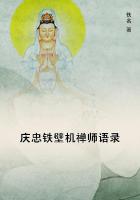From the first days of the peace conference it was evident there was a leak. The negotiations had been opened under a most solemn oath of secrecy. As to the progress of the conference, only such information or misinformation--if the diplomats considered it better-as was mutually agreed upon by the plenipotentiaries was given to a waiting world. But each morning, in addition to the official report of the proceedings of the day previous, one newspaper, the Times, published an account which differed from that in every other paper, and which undoubtedly came from the inside. In details it was far more generous than the official report; it gave names, speeches, arguments; it described the wordy battles of the diplomats, the concessions, bluffs, bargains.
After three days the matter became public scandal. At first, the plenipotentiaries declared the events described in the Times were invented each evening in the office of the Times; but the proceedings of the day following showed the public this was not so.
Some one actually present at the conference was telling tales out of school. These tales were cabled to Belgrade, Sofia, Athens, Constantinople; and hourly from those capitals the plenipotentiaries were assailed by advice, abuse, and threats. The whole world began to take part in their negotiations; from every side they were attacked;from home by the Young Turks, or the On to Constantinople Party;and from abroad by peace societies, religious bodies, and chambers of commerce. Even the armies in the field, instead of waiting for the result of their deliberations, told them what to do, and that unless they did it they would better remain in exile. To make matters worse, in every stock exchange gambling on the news furnished by the Times threatened the financial peace of Europe. To work under such conditions of publicity was impossible. The delegates appealed to their hosts of the British Foreign Office.
Unless the chiel amang them takin' notes was discovered and the leak stopped, they declared the conference must end. Spurred on by questions in Parliament, by appeals from the great banking world, by criticisms not altogether unselfish from the other newspapers, the Foreign Office surrounded St. James's Palace and the office of the Times with an army of spies. Every secretary, stenographer, and attendant at the conference was under surveillance, his past record looked into, his present comings and goings noted. Even the plenipotentiaries themselves were watched; and employees of the Times were secretly urged to sell the government the man who was selling secrets to them. But those who were willing to be "urged"did not know the man; those who did know him refused to be bought.
By a process of elimination suspicion finally rested upon one Adolf Hertz, a young Hungarian scholar who spoke and wrote all the mongrel languages of the Balkans; who for years, as a copying clerk and translator, had been employed by the Foreign Office, and who now by it had been lent to the conference. For the reason that when he lived in Budapest he was a correspondent of the Times, the police, in seeking for the leak, centred their attention upon Hertz. But, though every moment he was watched, and though Hertz knew he was watched, no present link between him and the Times had been established- and this in spite of the fact that the hours during which it was necessary to keep him under closest observation were few. Those were the hours between the closing of the conference, and midnight, when the provincial edition of the Times went to press. For the remainder of the day, so far as the police cared, Hertz could go to the devil! But for those hours, except when on his return from the conference he locked himself in his lodgings in Jermyn Street, detectives were always at his elbow.
It was supposed that it was during this brief period when he was locked in his room that he wrote his report; but how, later, he conveyed it to the Times no one could discover. In his rooms there was no telephone; his doors and windows were openly watched;and after leaving his rooms his movements were--as they always had been--methodical, following a routine open to observation.
His programme was invariably the same. Each night at seven from his front door he walked west. At Regent Street he stopped to buy an evening paper from the aged news-vender at the corner; he then crossed Piccadilly Circus into Coventry Street, skirted Leicester Square, and at the end of Green Street entered Pavoni's Italian restaurant. There he took his seat always at the same table, hung his hat always on the same brass peg, ordered the same Hungarian wine, and read the same evening paper. He spoke to no one; no one spoke to him.
When he had finished his coffee and his cigarette he returned to his lodgings, and there he remained until he rang for breakfast.
From the time at which he left his home until his return to it he spoke to only two persons--the news-vender to whom he handed a halfpenny; the waiter who served him the regular table d'hote dinner--between whom and Hertz nothing passed but three and six for the dinner and sixpence for the waiter himself.
Each evening, the moment he moved into the street a plain-clothes man fell into step beside him; another followed at his heels; and from across the street more plain-clothes men kept their eyes on every one approaching him in front or from the rear. When he bought his evening paper six pairs of eyes watched him place a halfpenny in the hand of the news-vender, and during the entire time of his stay in Pavoni's every mouthful he ate was noted--every direction he gave the waiter was overheard.















